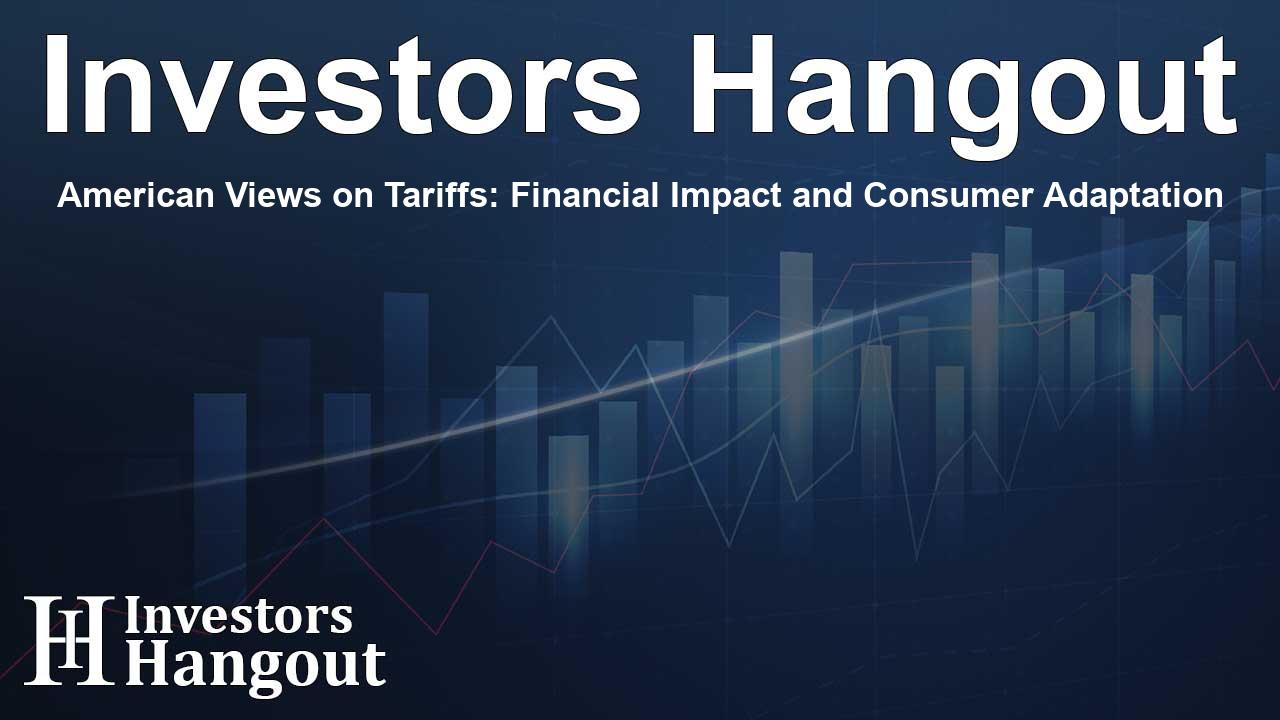American Views on Tariffs: Financial Impact and Consumer Adaptation

Understanding the Impact of Tariffs on American Households
A recent survey reveals that many Americans are increasingly worried about the economic ramifications of rising tariffs, especially as they prepare for the upcoming holiday season. Price hikes on essential items like groceries and clothing are causing changes in shopping habits, as people adjust their budgets to cope with these financial pressures.
Bipartisan Concerns Over Economic Health
According to the survey data, a significant number of Americans—over half—believe that U.S. tariffs will adversely affect the economy. This sentiment transcends political boundaries, highlighting a unified concern among various demographic groups.
Divided Opinions Among Democrats and Republicans
The survey indicates a notable division in opinions based on party lines, with 73% of Democrats and 55% of Independents expressing concern about tariffs, compared to only 33% of Republicans. This highlights how tariffs have become a central issue that resonates significantly with many citizens.
The Emotional Toll of Financial Strain
A striking statistic reveals that a large segment of the population—43%—feels that tariffs will impact their personal finances. An additional 35% view these tariffs as an invisible tax that consumers bear. The looming increase in tariffs expected over the next year contributes to this anxiety, leading to behavioral changes in shopping practices.
Changing Consumer Behaviors Amid Rising Prices
In light of current economic challenges, a majority of Americans are altering their purchasing decisions. This includes opting for less expensive brands as a financial coping mechanism. A remarkable 71% of individuals have either changed or are contemplating modifications in their buying habits due to increased costs.
The Shift Toward Budget-Friendly Choices
Recent data shows that 61% of respondents have switched to buying cheaper brands in response to the economic environment, emphasizing how tariffs are reshaping consumer choices. These changes are not merely superficial; they reflect a broader adaptation to new financial realities.
Price Increases: A Direct Result of Tariffs
Many Americans report experiencing noticeable price hikes. Specifically, 66% have seen grocery prices rise, while 42% mention clothing costs increasing significantly. This rising tide of prices impacts the financial landscape for families, with expectations that household finances will continue to feel the strain over the forthcoming months.
Stress and Uncertainty Among Consumers
Financial stress is palpable, with nearly 64% of individuals stating they feel somewhat or extremely stressed about their economic circumstances. While both Democrats and Republicans report stress, the rates vary significantly, with Democrats showing higher levels of concern at 71% compared to 59% of Republicans.
Fourth of July Celebrations: A Reflection of Economic Sentiments
The approaching Fourth of July holiday, typically a time for celebration, reflects the economic tensions many Americans are experiencing. This year, festivities are markedly quieter, indicating a shift in spending habits as families prioritize their financial well-being.
Adjustments to Holiday Spending
The survey notes that 27% of Americans plan to travel less compared to last year, while 71% intend to keep their spending under $250 for the holiday. This adjustment in behavior underscores the economic impact of tariffs on overall consumer confidence.
The Common Thread: The Love of Food
Despite the concerning economic backdrop, one unifying factor remains: the enjoyment of burgers during the Fourth of July celebrations. All political groups, including Democrats, Republicans, and Independents, agree on burgers being the preferred holiday food, showcasing a shared cultural tradition amidst economic uncertainties.
About Savanta
Savanta is a reputable data and market research firm dedicated to providing insightful information and empowering clients through effective consulting. They specialize in delivering high-impact consulting and data-driven insights.
Survey Methodology
The poll conducted by Savanta surveyed 1,000 U.S. adults aged 18 and older. The research took place over a short span and maintains a margin of error of 3% per 1,000 completes, ensuring a robust representation of public opinion.
Frequently Asked Questions
What do recent surveys reveal about American sentiments on tariffs?
The surveys indicate that a majority of Americans feel tariffs will negatively affect both the economy and their personal finances, leading to altered shopping behaviors.
How are tariffs influencing consumer spending habits?
As prices rise, many Americans are opting for cheaper brands and modifying their purchasing decisions to adapt to increased costs.
Is there a political divide regarding concerns over tariffs?
Yes, the survey shows varying degrees of concern based on political affiliation, with Democrats and Independents generally more concerned than Republicans.
What is the expected impact of rising tariffs on household finances?
Nearly 80% of participants anticipate that rising tariffs will affect their household finances over the coming year.
How will the Fourth of July celebrations reflect the current economic climate?
This year’s celebrations are expected to be more subdued, with many Americans planning to spend less and travel less compared to previous years, reflecting their economic concerns.
About The Author
Contact Kelly Martin privately here. Or send an email with ATTN: Kelly Martin as the subject to contact@investorshangout.com.
About Investors Hangout
Investors Hangout is a leading online stock forum for financial discussion and learning, offering a wide range of free tools and resources. It draws in traders of all levels, who exchange market knowledge, investigate trading tactics, and keep an eye on industry developments in real time. Featuring financial articles, stock message boards, quotes, charts, company profiles, and live news updates. Through cooperative learning and a wealth of informational resources, it helps users from novices creating their first portfolios to experts honing their techniques. Join Investors Hangout today: https://investorshangout.com/
The content of this article is based on factual, publicly available information and does not represent legal, financial, or investment advice. Investors Hangout does not offer financial advice, and the author is not a licensed financial advisor. Consult a qualified advisor before making any financial or investment decisions based on this article. This article should not be considered advice to purchase, sell, or hold any securities or other investments. If any of the material provided here is inaccurate, please contact us for corrections.
